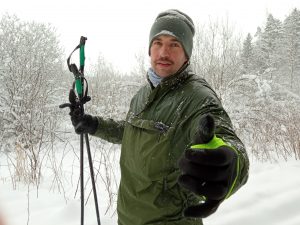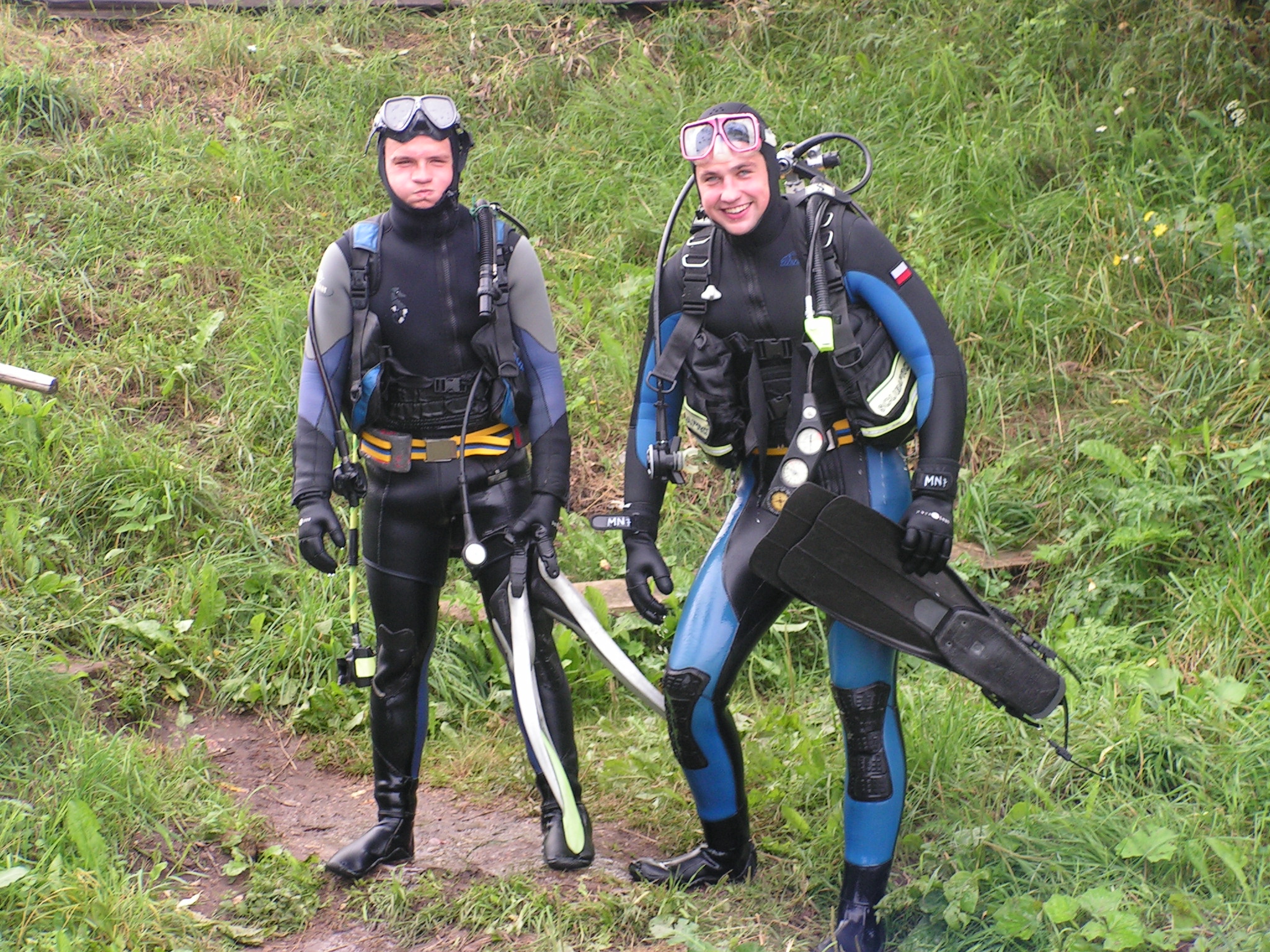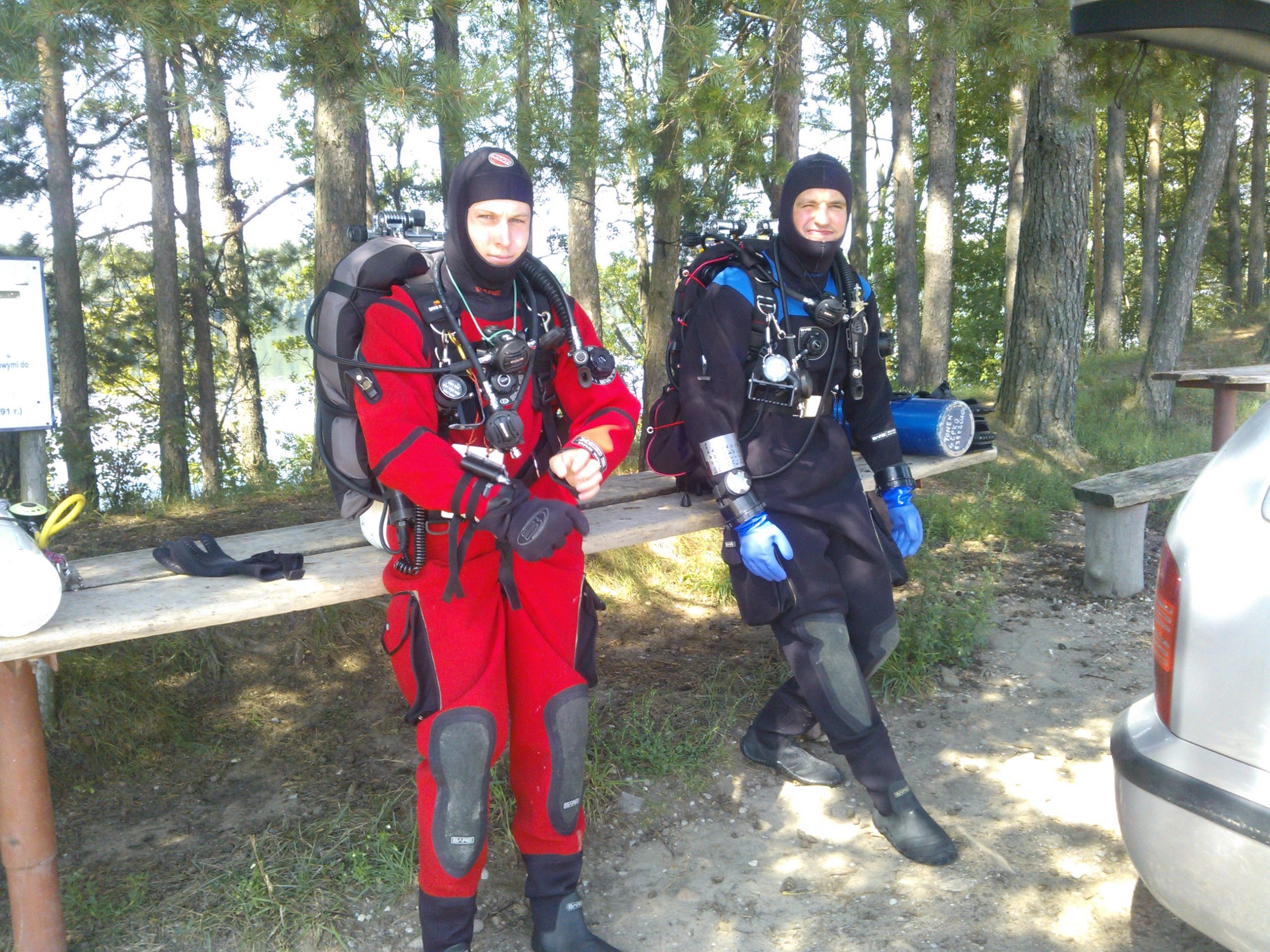Author: Daniel Popławski
If we were to compare diving programs of various training agencies that currently exist, we would notice a certain pattern. The first step is the basic level, then we have the advanced diver, then assistant instructor or divemaster level, and finally, at the end of the path – instructor level. This is the construction of well known main scheme of skills development encased around the ” main body” consisting of many additional diving specialties. Gaining each successive diving degree increases a diver’s experience and skills.
That allows him to dive deeper, in more difficult conditions, or with more complicated equipment configuration. Finally, gaining instructor qualifications, allows not only to dive independently, but also to train other people and introduce them to the underwater world. But is teaching others restricted just for instructors? Do only they can shape the minds of future divers or those who already dive? Do they have the exclusive right to develop habits, approach to water as an element, teaching the appropriate procedures, showing the correct configuration of the equipment? Finally are they solely responsible for what path of development this ever-growing community of recreational and technical “scuba divers” will take?
The answers to the above questions can be found in each diver’s past. It is enough to take a moment to reflect on the beginnings of your own diving career. Inexperienced person, having no previous contact with diving, comes to his or hers first course. There are as many reasons to start diving as there are divers: curiosity, persuasion of friends or just looking for a new purpose in life. Regardless of the motivation, this is the beginning of everything. Discovering a whole new world. It can be compared to being born again. A person in this new world, learns to move, communicate and even breathe from the scrap. He or she overcomes his/ hers own fears, dives deeper and deeper, in a more and more conscious way observes the environment and controls his/ hers movements. In these first underwater adventures he/ she is accompanied by his/ hers instructor. It is safe to say that at the beginning the instructor is an alpha and omega for the student, like a parent for a newborn baby. The student trusts him/ her implicitly, follows his/ hers instructions and learns how to take the first steps in the underwater world. Eventually the course comes to an end and the student becomes an independent diver. Then the whole world opens up to him/ her, and with it the endless combinations of opportunities, some good, and others, unfortunately, bad.
There is a saying “as the twig is bend, so is the tree inclined”. There is a lot of truth in this, also in relation to diving. However, this “twig” does not refer only to the basic diving course, but also to the first steps of a diver after the course. Whether in a club, among friends or just on the dive site, such a novice diver will have contact with other certified divers. These are not necessarily people with much more experience, often they will have the same (basic) diving level and just a year or even a few months more of diving experience.
At these dive sites, centers and diving clubs you should look for answers to the questions posed in the first paragraph. It should be remembered that the novice diver ALWAYS observe others, assess, search, in other words – is curious about the new environment and society. This is the moment to learn, develop habits and your own way of perceiving the underwater world and approach to many important aspects of diving, such as equipment configuration, procedures used, safety rules or path of career. The opinions of other divers will influence the beginner, and some of them may contradict what he/ she learned during the course. Many observations will also be completely new, and with more time spendon the dives the more contradictions or new solutions will appear.
It is worth noticing that these issues do not apply only to beginner divers with a basic level, but this phenomenon can also be extended to other groups of divers with different certifications. It should be remembered that self-development, no matter which field, is a continuous and infinite process. There will always be some new skill to acquire or improve, and each dive or contact with another person is a new experience, exchange of views and opinions. Therefore, the process described earlier does not occur only in the space between a novice diver and other divers, but also in all other spaces, between divers of different levels and experience, such as advanced diver – divemaster or novice diver – divemaster.
Each person is different because he or she carries an individual baggage of experience. It is important to remember this. However, you should also keep a distance to the acquired information and sift them through a kind of filter created from the acquired experience and skills. This is a very important principle, which should be followed in every area of life. From the point of view of a novice diver the problem of getting the right information is more complicated. Paradoxically, the lack of diving experience makes beginners assimilate the most knowledge. On the other hand, the same feature makes it more difficult for the novice diver to assess whether the knowledge is useful, and most importantly, whether it is correct. Therefore, the first stage of the career is so important in the future development of diving.
At a later stage, after forming appropriate opinions and checking many solutions, getting the right information becomes much easier than at the beginning.
You should keep this in mind while on the dive site and while planning your own dives. Not only for your own safety, but also for the sake of other divers, who may observe your behavior. It does not matter whether you are a week after the basic course, or have instructor qualifications for several years or even more. Bending (or breaking!) the basic rules of safety and good diving practice, such as diving without an adequate gas supply, using incomplete or malfunctioning equipment will unfortunately be remembered much faster than the correct behaviour. These require from us much more effort than the easier, but also less safe way. What may, let’s repeat MAY, work once or twice for an experienced team, with lack of experience and skills often turns into a difficult problem to manage, and sometimes a tragedy. The term “beginner” does not refer only to the basic diving level, but to the rest of those levels too, because gaining each of them brings new elements and challenges. Observing bad techniques or procedures causes the observer to think “it’s easy for them, it will be easy for me, why bother”. Unfortunately, such reasoning may prove disastrous in diving. We should never allow ourselves to take “shortcuts”.
Awareness of one’s own actions, a sense of responsibility and appropriate emotional maturity are essential elements of every good diver. The ability to observe the behaviour of others as well as the awareness that one is being observed should influence our behaviour and diving choices. Choosing the right attitudes and openly opposing the wrong ones is the key to rapid development in the right direction. How much better will we feel with the knowledge that our behavior promotes safety and our experience helps others to grow.

About the author
Daniel Poplawski is an experienced IDF Master Diver Instructor from Mazurian Lakes Region. He is the author of many training presentations used by IDF instructors. Trained as a chemist, Daniel applies his knowledge in more specific aspects of diving, such as gas blending. Privately a fan of a healthy lifestyle and activity, his responsible and enthusiastic attitude affects new divers very fast.





